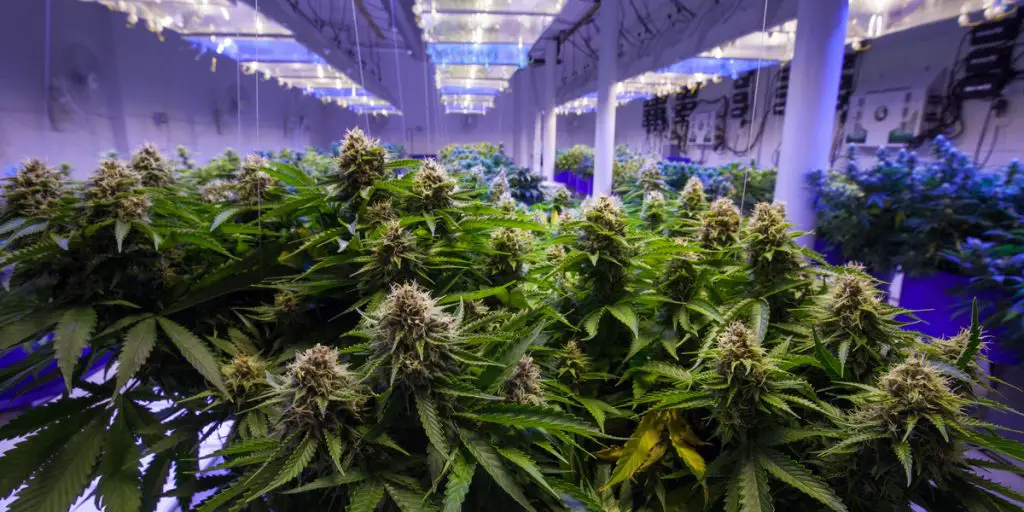DEA Announces Review Of Legal Marijuana Growers

In August 2019, the Drug Enforcement Agency (DEA) announced that it would provide regulations for programs that grow marijuana for the purpose of medical and scientific research. Marijuana growers can apply to be registered to grow medical marijuana. Marijuana research in the United States has been complicated by the legal aspects of growing bulk marijuana due to federal regulations that categorize marijuana as a controlled substance.
In April 2019, the U.S. government published Title 21 as part of the federal regulation code for manufacturing marijuana. This code explained that people who wished to grow marijuana must register and receive approved notice due to the controlled nature of marijuana. This new provision would further allow people who grow marijuana to do so under clear, legal regulations and provide their crops as research into the legitimate medical use of the drug.
The Importance of Marijuana Research
Scientific research on marijuana has been limited due to a lack of clarity on the classification of marijuana and the legalization of the drug outpacing or out prioritizing sanctioned research in many states.
The University of Mississippi marijuana program has been the only place in the United States where pot was legally allowed to be grown for research purposes. This program is the only one of its kind and has existed since 1968. It is sanctioned through a contract with the government. Part of this contract states the nature of cannabis research to be performed:
- Extract various kinds and concentrations of cannabis
- Grow, assess, store and distribute marijuana for research purposes
- Isolate cannabinoids for individual research
- Create new strains and methods of growing cannabis
- Manufacture and analyze marijuana cigarettes
The program at the University of Mississippi receives about $1.5 million a year from the National Institute on Drug Abuse to grow and research marijuana. The process of renewing this contract every five years if strenuous, with no assurance that research can continue if the proposal is refused by the government. This and many other factors have historically limited other reputable research institutions from embarking on their own work in this field. This latest initiative from the DEA may be transformational in providing easier processes for establishing credible marijuana research.
The Food and Drug Administration (FDA) has also moved in the direction of encouraging marijuana research. For instance, some of the areas they acknowledge need immediate attention to ensure safe consumer use of cannabis and cannabis products include:
- Better consumer education regarding the ingredients and potencies of over-the-counter marijuana products
- Enhanced research and clinical trials so that marijuana products can be approved by the FDA
- Testing marijuana as a treatment for various diseases
- Understanding the risk or danger of marijuana use, including addiction and long-term health impacts
Marijuana contains tetrahydrocannabinol (THC), which is a psychoactive substance. THC is the reason that marijuana makes people feel high. There are several available applications of marijuana derivatives, such as CBD oil, that do not contain THC. However, when THC is present, there is a risk for addiction. If you or someone you know is struggling with a marijuana addiction, The Recovery Village Ridgefield can help. Call to speak to a representative today to learn about treatment programs.
Sources
Federal Register. “Bulk Manufacturer of Controlled Substances Applications: Bulk Manufacturers of Marihuana.” Drug Enforcement Administration, August 27, 2019. Accessed September 19, 2019.
U.S. Food and Drug Administration. “Researching the Potential Medical Benefits and Risks of Marijuana.” July 12, 2016. Accessed October 9, 2019.
Government Publishing Office. “Title 21 – Food and Drugs.” April 1, 2019. Accessed September 19, 2019.
National Institutes of Health. “6315-1 – Initiation, Review, Evaluation, and Award of Research & Development (R&D) Contracts.” October 18, 2004. Accessed September 19, 2019.
Owermohle, Sarah. “Legal weed is everywhere — unless you’re a scientist.” Politico, December 25, 2018. Accessed September 19, 2019.
University of Mississippi. “The Marijuana Project.” Accessed September 19, 2019.
University of Mississippi. “NIDA Contract.” Accessed October 9, 2019.
View Sources
Federal Register. “Bulk Manufacturer of Controlled Substances Applications: Bulk Manufacturers of Marihuana.” Drug Enforcement Administration, August 27, 2019. Accessed September 19, 2019.
U.S. Food and Drug Administration. “Researching the Potential Medical Benefits and Risks of Marijuana.” July 12, 2016. Accessed October 9, 2019.
Government Publishing Office. “Title 21 – Food and Drugs.” April 1, 2019. Accessed September 19, 2019.
National Institutes of Health. “6315-1 – Initiation, Review, Evaluation, and Award of Research & Development (R&D) Contracts.” October 18, 2004. Accessed September 19, 2019.
Owermohle, Sarah. “Legal weed is everywhere — unless you’re a scientist.” Politico, December 25, 2018. Accessed September 19, 2019.
University of Mississippi. “The Marijuana Project.” Accessed September 19, 2019.
University of Mississippi. “NIDA Contract.” Accessed October 9, 2019.




